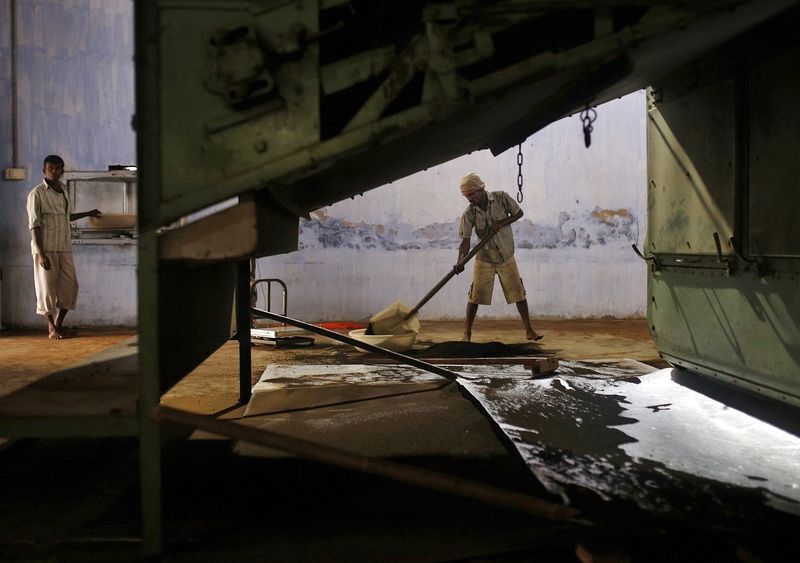BENGALURU (Reuters) - Data to be released next week is likely to show Indian factory output growth slowing and retail inflation cooling further, a Reuters poll of economists found, giving the Reserve Bank of India room to ease policy for the third time this year.
The consensus from a survey of 22 forecasters predicted India's industrial production (IIP) <INIP=ECI> rose 2.8 percent annually in March, slowing from February's three-month high of 5.0 percent.
Sluggish economic activity and a fall in production at core industries dragged it lower, poll participants said.
Annual infrastructure output growth <ININFR=ECI>, also referred to as core industries, shrank 0.1 percent in March due to lower cement and steel production, government data showed last week.
The core industries - coal, crude oil, oil refining, steel, cement and electricity among others - account for more than a third of overall industrial output.
Weak global demand, especially from major export destinations like Europe, also weighed on Indian factories. Exports have been sliding since September and fell a whopping 21.06 percent annually in March.
"Against this backdrop we expect domestic economic activity to have remained subdued in March," said Bharti Bhargava, regional economist at 4CAST.
The poll suggested inflation <INCPIY=ECI> eased to 4.9 percent in April from March's three-month low of 5.2 percent, comfortably below the RBI's target of 6 percent by January 2016.
Although recent untimely rains damaged crops, raising concerns about a sharp rise in food prices, its impact has not been felt so far as the government might be offsetting some of the loss in output by releasing stocks.
"The likelihood of soft international commodity prices, including oil, as well as the persistence of subdued core inflation is likely to mean that headline CPI remains below the RBI's target of 6 percent," said Jyotinder Kaur, principal economist at HDFC Bank.

"We expect inflation to average 5.4 percent over fiscal year 2016, that should keep space open for repo rate cuts of another 50 basis points over the course of the fiscal year."
(Reporting and polling by Sarbani Haldar; Editing by Simon Cameron-Moore)